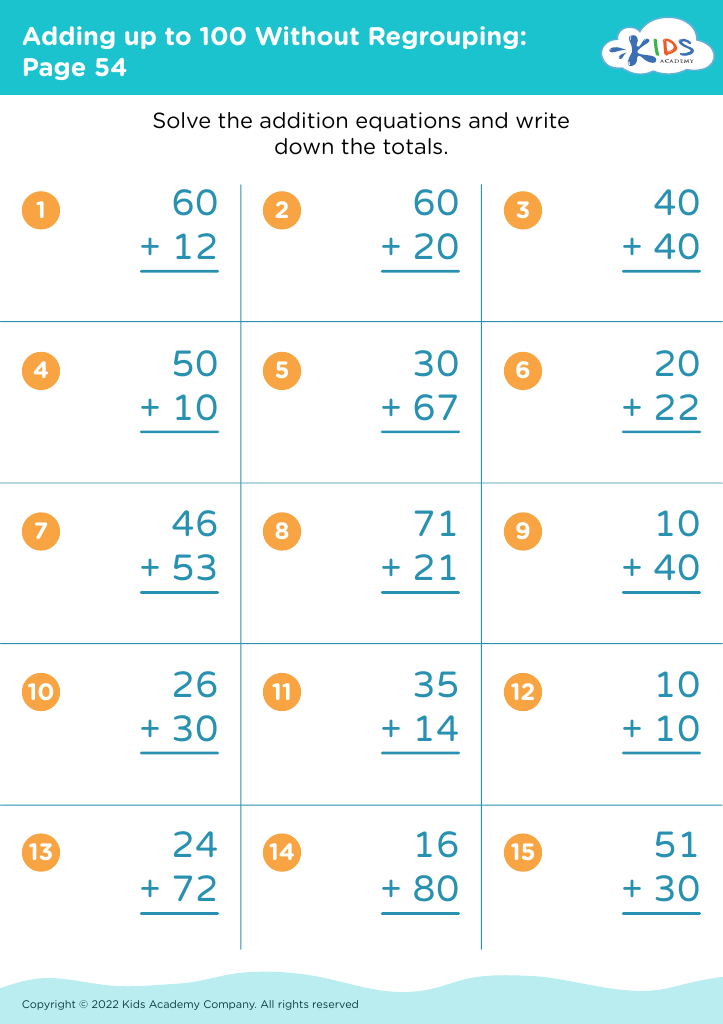Fraction conversion Math Worksheets for 7-Year-Olds
3 filtered results
-
From - To
Unlock the world of fractions with our engaging Fraction Conversion Math Worksheets tailored for 7-year-olds. These meticulously crafted worksheets simplify the complexities of converting fractions, making it an intuitive learning experience. Focusing on fundamental concepts, our exercises enhance problem-solving skills while using fun illustrations to keep young learners captivated. Each worksheet is designed to build a strong numerical foundation, ensuring kids not only grasp the basics but also enjoy the journey. Equip your child with essential math skills through interactive and enjoyable practice. Explore our collection today and transform your child's mathematical potential!
Understanding fraction conversion is a cornerstone of mathematical education for young students, including 7-year-olds who have just begun to grasp these concepts. At this age, children are transitioning from simple arithmetic to more complex mathematical concepts. Fraction conversion is crucial because it promotes numerical fluency, making it easier for students to grasp more advanced topics later on, such as algebra and geometry.
Teachers and parents who prioritize fraction conversion are fostering early analytical thinking and problem-solving skills in their students or children. These skills are not limited to mathematics alone but are indispensable in real-life situations, such as cooking, measuring items, and managing finances. For instance, understanding that 0.5 is the same as 1/2 can help children follow recipes accurately when they need to double or halve measurements.
Moreover, fractions often pave the way for understanding decimals, percentages, and ratios. When parents and teachers help children master these conversions early, it builds a solid foundation, making future learning less daunting. Positive reinforcement in this area boosts a child’s confidence and inspires a lifelong interest in mathematics. Hence, emphasizing fraction conversion in early education equips children with essential tools that enrich both their academic journey and daily life encounters.




















